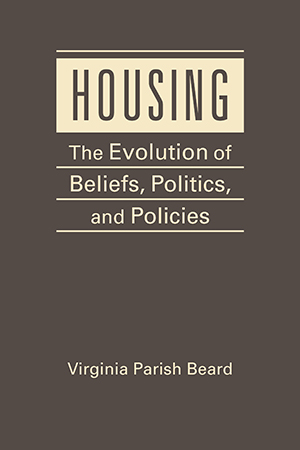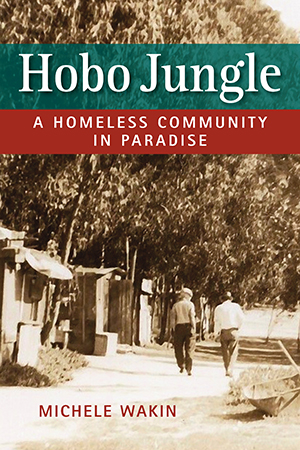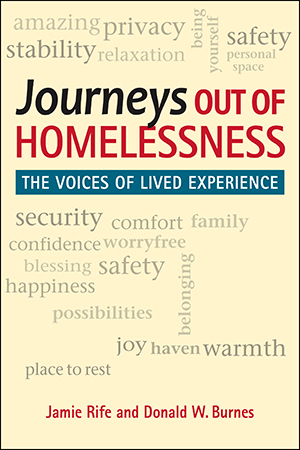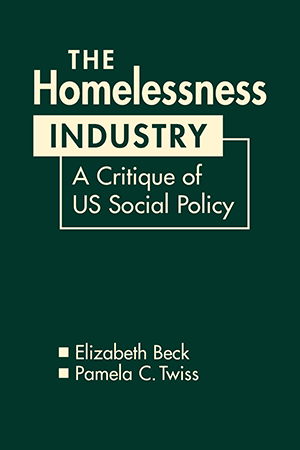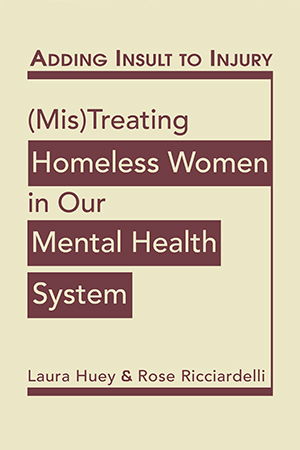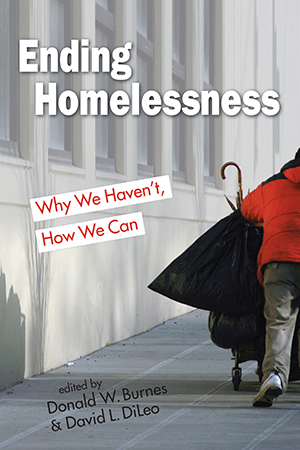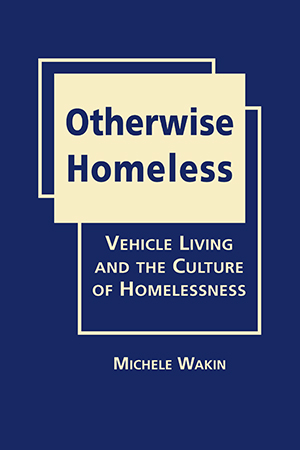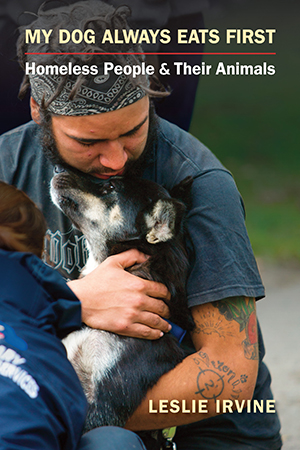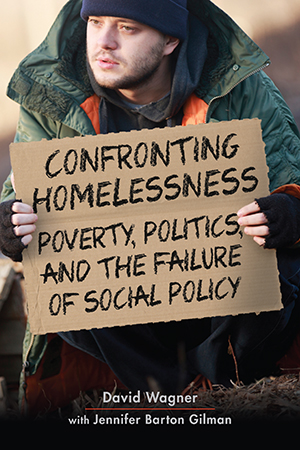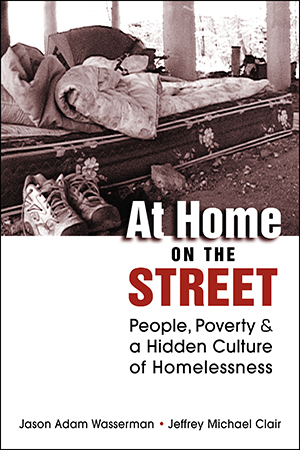Homelessness (all books)
Why are some people in the United States securely housed, while others struggle to obtain and maintain stable homes? What beliefs, and their consequent policies, have led to these More >
For many decades and for many reasons, people who are homeless have chosen to live in camps or other makeshift settings, even when shelters are available. Is this an act of resistance? Of More >
How do individuals move from being homeless to finding safe, stable, and secure places to live? Can we recreate the conditions that helped them most? What policies are needed to support what More >
Homelessness once was considered an aberration. Today it is a normalized feature of US society. It is also, argue Elizabeth Beck and Pamela Twiss, an industry: the embrace of More >
Despite widespread recognition that the majority of homeless women suffer from severe mental and emotional trauma, our healthcare system has essentially left them untreated—other than More >
Despite billions of government dollars spent in the attempt, we are no closer than we were three decades ago to solving the problem of homelessness. Why? Tackling these questions, the More >
Privacy, mobility, dignity—living in a vehicle offers many advantages over life in a shelter or on the street. Michele Wakin broadens our understanding of homelessness by exploring the More >
A weary-looking man stands at an intersection, backpack at his feet. Curled up nearby is a mixed-breed dog, unfazed by the passing traffic. The man holds a sign that reads, "Two old More >
Choice Outstanding Academic Book! Whose fault is homelessness? Thirty years ago the problem exploded as a national crisis, drawing the attention of activists, the media, and policymakers More >
In their compelling examination of what it means to be truly at home on the street, Jason Wasserman and Jeffrey Clair argue that programs and policies addressing homeless people too often More >



